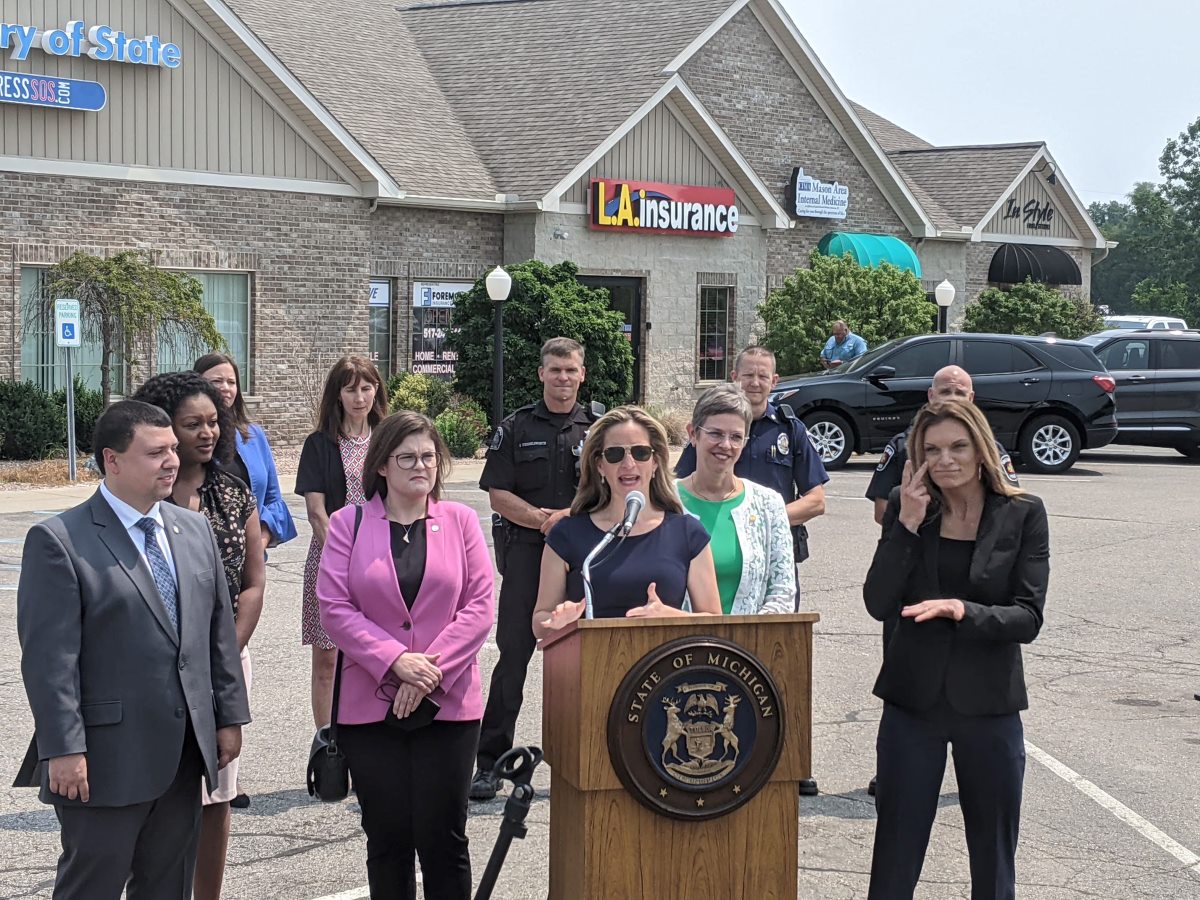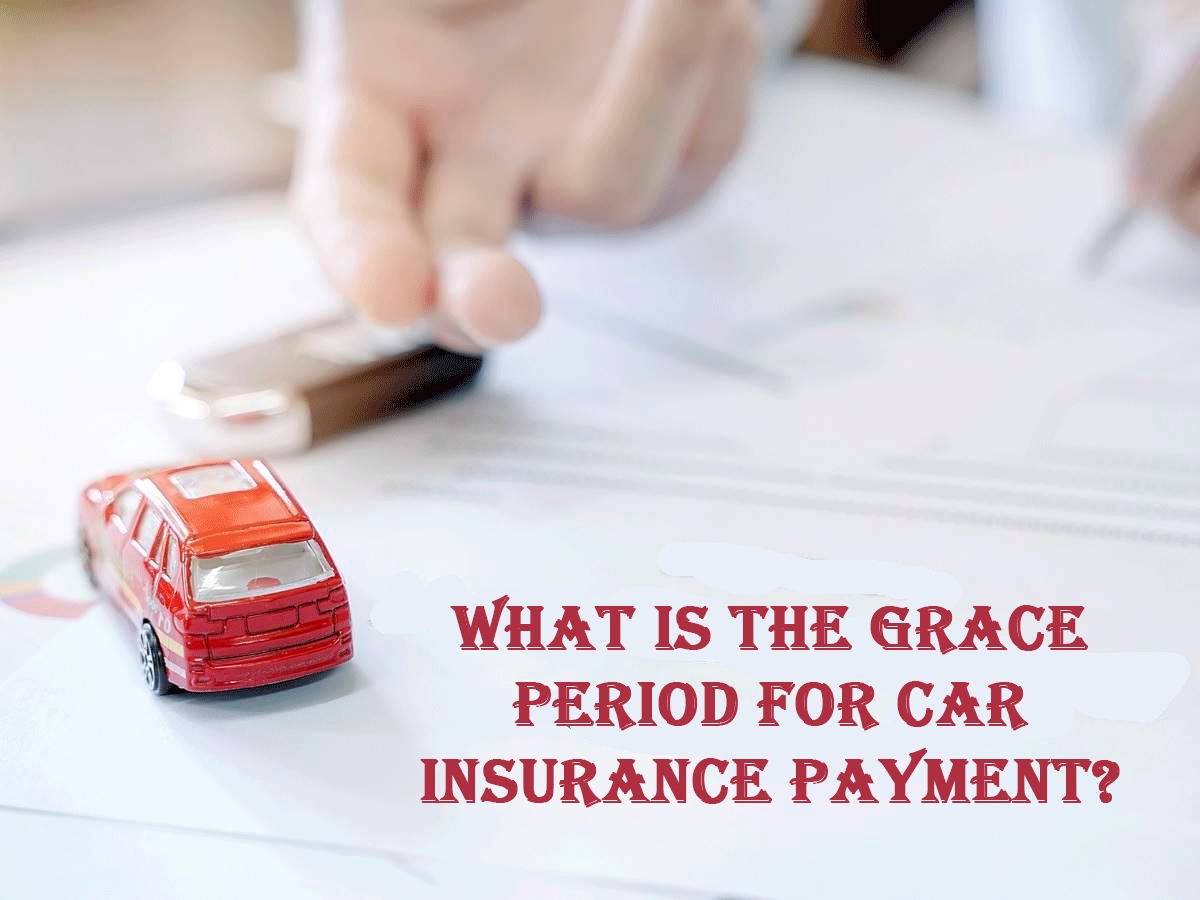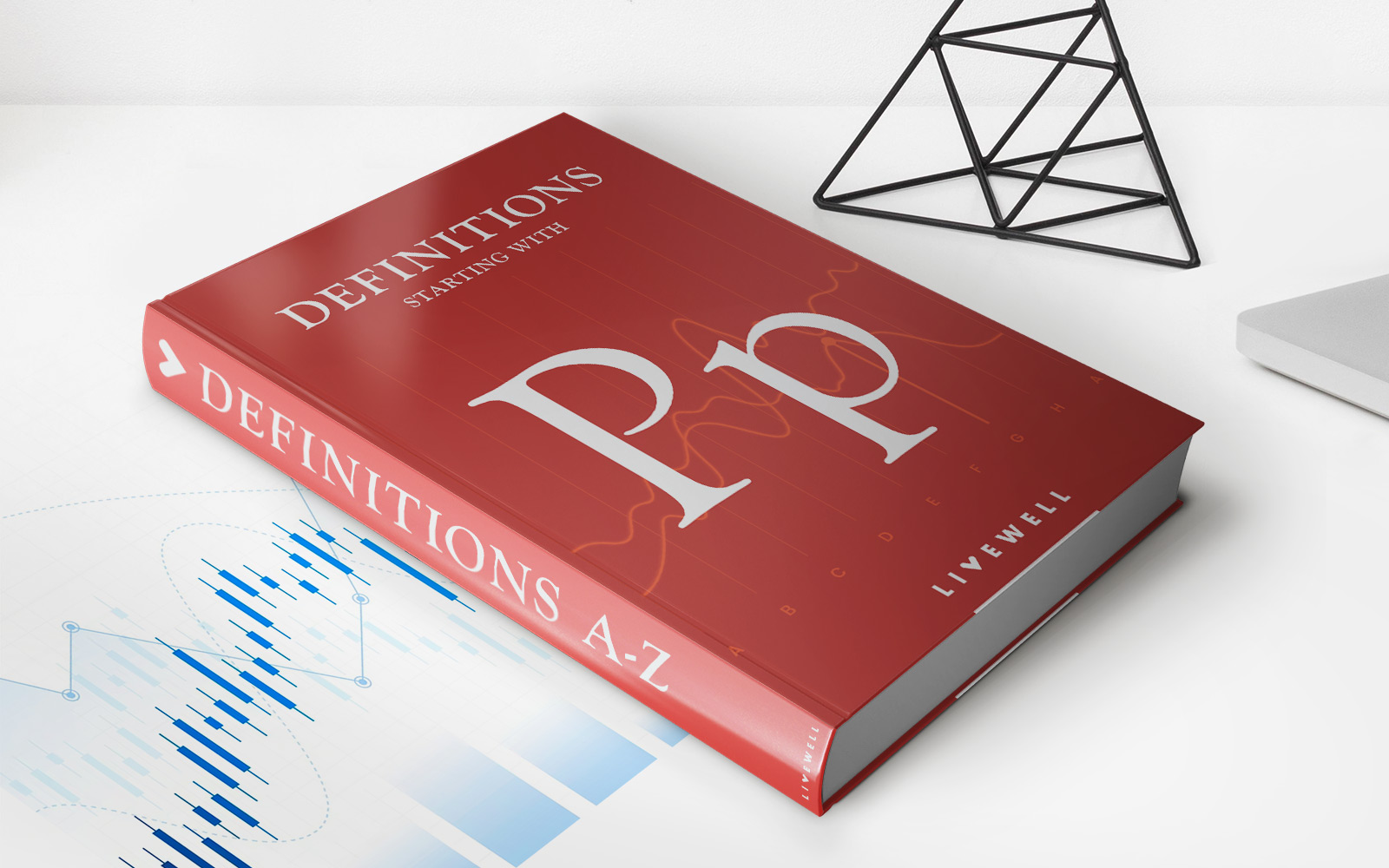Home>Finance>What Is The Grace Period For Homeowners Insurance Renewal?


Finance
What Is The Grace Period For Homeowners Insurance Renewal?
Published: February 19, 2024
Learn about the grace period for homeowners insurance renewal and how it impacts your finances. Understand the implications and make informed decisions.
(Many of the links in this article redirect to a specific reviewed product. Your purchase of these products through affiliate links helps to generate commission for LiveWell, at no extra cost. Learn more)
Table of Contents
Introduction
Welcome to the world of homeowners insurance renewal! As a homeowner, you understand the significance of protecting your most valuable asset. Homeowners insurance provides a safety net, offering financial protection against unforeseen events such as natural disasters, theft, or accidents on your property. However, the process of renewing your homeowners insurance policy can sometimes be accompanied by questions and uncertainties.
In this article, we will delve into the concept of homeowners insurance renewal and explore the grace period associated with it. Understanding the grace period is crucial for homeowners, as it provides a window of time during which policyholders can submit their renewal payments without facing negative repercussions. By gaining insights into the grace period and its implications, you will be better equipped to navigate the renewal process and ensure the continuous protection of your cherished abode.
So, let’s embark on a journey to unravel the mysteries of homeowners insurance renewal and discover the importance of the grace period in safeguarding your home and peace of mind.
Understanding Homeowners Insurance Renewal
Homeowners insurance renewal is a recurring process that allows policyholders to extend their coverage for another term, typically one year. When you initially purchase a homeowners insurance policy, it is valid for a specific period, often one year. As the policy approaches its expiration date, you are required to renew it to maintain continuous coverage.
During the renewal process, you have the opportunity to review and, if necessary, update your policy to ensure it aligns with your current needs and circumstances. This may involve adjusting coverage limits, adding endorsements, or modifying deductibles to better suit your evolving requirements. It’s essential to carefully assess your policy during the renewal period to guarantee that it adequately safeguards your home and possessions.
When the renewal date nears, your insurance provider will typically send you a renewal notice outlining the terms, premium amount, and any changes to the policy. It’s crucial to carefully review this notice to understand any modifications and ensure that the information is accurate. Additionally, the renewal notice will specify the deadline for submitting the renewal premium, marking the onset of the grace period.
Understanding the renewal process empowers homeowners to make informed decisions regarding their insurance coverage. By comprehending the intricacies of homeowners insurance renewal, you can proactively address any adjustments or concerns, thereby maintaining comprehensive protection for your home.
Grace Period for Homeowners Insurance Renewal
Upon receiving the renewal notice, homeowners enter a crucial phase known as the grace period. The grace period serves as a buffer after the policy’s expiration date, during which policyholders can submit their renewal premium without the risk of coverage termination. This period, typically lasting 30 days, offers a degree of flexibility to homeowners who may need additional time to arrange their renewal payment.
It’s important to note that the length of the grace period may vary depending on the insurance provider and the terms outlined in the policy. Some insurers may offer shorter or longer grace periods, so it’s essential to consult your policy or contact your insurance agent to ascertain the specific duration applicable to your coverage.
During the grace period, your insurance coverage remains in effect, providing reassurance and protection while you finalize the renewal process. However, it’s imperative to adhere to the renewal timeline and submit your premium within the grace period to avoid any potential lapses in coverage.
Understanding the grace period is paramount for homeowners, as it delineates the window of opportunity for ensuring uninterrupted insurance protection. By leveraging this grace period effectively, policyholders can navigate the renewal process with confidence, knowing that their homes and assets remain safeguarded as they attend to the necessary administrative tasks.
Now that we’ve explored the significance of the grace period, let’s delve into its importance in the context of homeowners insurance renewal and the potential consequences of missing this critical deadline.
Importance of the Grace Period
The grace period holds immense significance in the realm of homeowners insurance renewal, offering a vital lifeline to policyholders as they navigate the process of extending their coverage. This additional time frame serves as a protective measure, allowing homeowners to manage their renewal payments without immediate repercussions, thereby mitigating the risk of coverage termination.
One of the primary benefits of the grace period is its provision of flexibility. Life can be unpredictable, and unforeseen circumstances may arise that temporarily hinder the timely submission of the renewal premium. Whether it’s due to financial constraints, administrative oversight, or logistical challenges, the grace period affords homeowners the opportunity to rectify the situation and uphold their insurance coverage.
Moreover, the grace period acts as a safety net, offering peace of mind to homeowners during the renewal process. It serves as a transitional phase, bridging the gap between the expiration of the previous policy and the commencement of the renewed coverage. This interim period is instrumental in ensuring that homeowners remain protected while finalizing the necessary arrangements for policy continuation.
Additionally, the grace period underscores the insurer’s commitment to fostering a cooperative and supportive relationship with policyholders. By granting this additional time for renewal, insurance providers demonstrate a willingness to accommodate the practical needs of homeowners, acknowledging that certain circumstances may warrant an extension beyond the policy expiration date.
Understanding the importance of the grace period empowers homeowners to approach the renewal process with confidence and clarity. By recognizing the value of this transitional interval, policyholders can navigate the administrative aspects of insurance renewal while maintaining a sense of security and stability regarding their coverage.
As we grasp the significance of the grace period, it’s essential to acknowledge the potential consequences of missing this critical deadline, which we’ll explore in the following section.
Consequences of Missing the Grace Period
While the grace period offers a valuable extension for homeowners to submit their renewal premium, it’s crucial to recognize the potential ramifications of missing this critical deadline. Failing to adhere to the grace period and submit the renewal payment in a timely manner can lead to significant repercussions, impacting the continuity and validity of your homeowners insurance coverage.
One of the immediate consequences of exceeding the grace period is the risk of coverage termination. If the renewal premium is not received within the stipulated grace period, the insurance policy may lapse, leaving your home and assets vulnerable to potential risks and liabilities. This lapse in coverage can create a gap in protection, exposing homeowners to financial uncertainties in the event of unforeseen perils.
Furthermore, a lapsed insurance policy may necessitate reinstatement, which could entail additional administrative complexities and financial implications. Reinstating a lapsed policy may involve fulfilling specific requirements, undergoing a review process, and potentially incurring reinstatement fees. This process not only poses logistical challenges but also underscores the importance of honoring the grace period to avoid disruptions in coverage.
Moreover, a lapsed homeowners insurance policy can have broader implications, especially if a loss or damage occurs during the period of lapsed coverage. Without active insurance protection, homeowners may bear the full financial burden of repairing or replacing their property and belongings, amplifying the potential repercussions of missing the grace period.
Understanding the consequences of missing the grace period underscores the criticality of adhering to the renewal timeline and submitting the premium within the specified timeframe. By recognizing the potential pitfalls associated with failing to meet this deadline, homeowners can prioritize the timely completion of their renewal payments, ensuring the uninterrupted protection of their homes and assets.
As we navigate the complexities of homeowners insurance renewal, it’s essential to equip homeowners with practical tips for managing this process effectively, which we’ll explore in the following section.
Tips for Managing Homeowners Insurance Renewal
Effectively managing your homeowners insurance renewal is pivotal in ensuring continuous protection for your cherished abode. By adopting proactive strategies and leveraging practical tips, homeowners can navigate the renewal process with confidence and diligence, safeguarding their homes and possessions. Here are some valuable tips to streamline the management of homeowners insurance renewal:
- Review the Renewal Notice: Upon receiving the renewal notice from your insurance provider, carefully review the terms, premium amount, and any policy modifications. Verify the accuracy of the information and take note of the renewal deadline and grace period duration.
- Assess Your Coverage Needs: Take this opportunity to assess your current coverage needs. Consider any changes in your property value, home improvements, or valuable assets that may necessitate adjustments to your coverage limits or endorsements.
- Plan Ahead for Payment: As the renewal deadline approaches, plan for the submission of your renewal premium. Ensure that you have the necessary funds available and consider setting a reminder to avoid missing the grace period.
- Communicate with Your Insurance Agent: If you have any questions or require clarifications regarding the renewal process, don’t hesitate to reach out to your insurance agent. Clear communication can alleviate uncertainties and facilitate a smooth renewal experience.
- Explore Payment Options: Investigate the various payment methods accepted by your insurance provider. Some insurers offer convenient online payment portals or automatic withdrawal options, simplifying the renewal payment process.
- Stay Informed About Policy Changes: Be attentive to any updates or modifications in your policy terms. Stay informed about any changes in coverage, deductibles, or endorsements to ensure that your policy aligns with your protection needs.
- Prioritize Timely Submission: Aim to submit your renewal premium within the grace period to avoid potential lapses in coverage. Proactive adherence to the renewal timeline is instrumental in safeguarding your home and assets.
By implementing these practical tips, homeowners can effectively manage the complexities of homeowners insurance renewal, ensuring that their coverage remains robust and up-to-date. Navigating the renewal process with attentiveness and foresight empowers homeowners to uphold the security and resilience of their homes.
Conclusion
In conclusion, homeowners insurance renewal encompasses a pivotal phase in maintaining the protection and security of your most significant investment—your home. Understanding the grace period and its implications is fundamental in navigating the renewal process with confidence and diligence.
The grace period serves as a critical buffer, offering homeowners the flexibility and time to manage their renewal payments without the immediate risk of coverage termination. This transitional interval underscores the insurer’s commitment to accommodating the practical needs of policyholders, fostering a supportive and cooperative relationship.
However, it’s imperative to recognize the consequences of missing the grace period, as failing to submit the renewal premium in a timely manner can lead to coverage lapses and potential reinstatement complexities. By prioritizing the timely completion of renewal payments and leveraging practical tips for effective management, homeowners can ensure the continuous protection of their homes and possessions.
As you embark on your homeowners insurance renewal journey, remember to review the renewal notice attentively, assess your coverage needs, and communicate proactively with your insurance agent. Planning ahead for the renewal payment and staying informed about policy changes are instrumental in upholding comprehensive coverage.
By embracing these strategies and recognizing the value of the grace period, homeowners can navigate the renewal process adeptly, safeguarding their homes and assets with unwavering resilience and foresight. As you embark on this renewal endeavor, may your home remain a sanctuary of security and tranquility, fortified by the shield of comprehensive homeowners insurance coverage.














